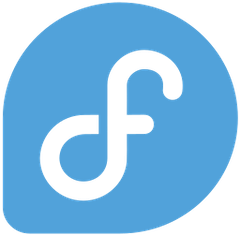How To Install Bpytop on AlmaLinux 9

In this tutorial, we will show you how to install Bpytop on AlmaLinux 9. Bpytop is a powerful command-line utility that provides real-time information about system resource usage, including CPU, memory, network, and processes. Its user-friendly interface and extensive feature set make it a top choice for system administrators and enthusiasts.
This article assumes you have at least basic knowledge of Linux, know how to use the shell, and most importantly, you host your site on your own VPS. The installation is quite simple and assumes you are running in the root account, if not you may need to add ‘sudo‘ to the commands to get root privileges. I will show you the step-by-step installation of the Bpytop resource monitor on AlmaLinux 9. You can follow the same instructions for CentOS and Rocky Linux or RHEL-based.
Prerequisites
- A server running one of the following operating systems: AlmaLinux 9.
- It’s recommended that you use a fresh OS install to prevent any potential issues.
- SSH access to the server (or just open Terminal if you’re on a desktop).
- An active internet connection. You’ll need an internet connection to download the necessary packages and dependencies for Bpytop.
- Bpytop requires certain permissions that can only be granted to a superuser or a user with
sudoprivileges. Ensure that you have the necessary administrative access.
Install Bpytop on AlmaLinux 9
Step 1. Keeping your system up-to-date is essential. To ensure that you have access to the latest packages and updates, run the following commands:
sudo dnf clean all sudo dnf update
This command will update your package repository, ensuring that you have the latest software packages and security patches.
Step 2. Installing the Required Dependencies.
Before installing Bpytop, you’ll need to install a few dependencies. These dependencies ensure that Bpytop operates seamlessly on your AlmaLinux 9 system. Execute the following command to install the required packages:
sudo dnf install git gcc make python3 python3-pip python3-devel
Step 3. Installing Pip (Python Package Installer).
Pip is a package manager for Python, and it’s an essential tool for managing Python packages, including Bpytop. To install Bpytop, we need to ensure that Pip is available on your system. Let’s begin by installing Pip:
sudo dnf install python3-pip
Pip simplifies the installation of Python packages, making it an indispensable tool for the installation of Bpytop.
Step 4. Installing Bpytop on AlmaLinux 9.
Now, let’s install Bpytop using Pip. The process is straightforward. Run the following command in your terminal:
pip3 install bpytop
Pip will download and install Bpytop and its dependencies. This step may take a few moments, depending on your internet connection and system performance.
Step 5. Accessing Bpytop on AlmaLinux.
You can start Bpytop anytime by running the following command:
bpytop
Once started, you’ll be greeted by the Bpytop interface, displaying a wealth of real-time information about your system’s performance.

If you decide to remove Bpytop from your AlmaLinux 9 system, you can do so easily:
pip3 uninstall bpytop
Remove any residual configuration files:
rm -rf ~/.config/bpytop/
Congratulations! You have successfully installed Bpytop. Thanks for using this tutorial for installing the Bpytop resource monitor on your AlmaLinux 9 system. For additional help or useful information, we recommend you check the official Bpytop website.